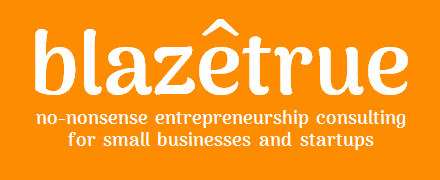


entrepreneur+ 5 essential qualities of true entrepreneurs

Prince Peter 25th May 2025 updated.
Let us explore in-depth What - or who - is an entrepreneur? and, What qualities define an entrepreneur?
Let's understand the true meaning of entrepreneur, and discover why entrepreneurs are magical beings.
We will discover what qualities make a true entrepreneur and how entrepreneurs redefine limits for all of us, and why ignorance is an entrepreneur's best ally.
Let's comprehend why all great entrepreneurs embrace failure, and learn why belief is the cornerstone of entrepreneurship, and realize why, even if they are financially successful, entrepreneurs without passion are big failures.
This Blazetrue article too is aimed at my core audience of independent startup and small business entrepreneurs.
Entrepreneur| Discovering Magic

Look around you. And near you.
What do you see?
Buildings? Vehicles at a distance? A TV maybe? Books? A mirror? Machines?
The clothes you are wearing? Roads? Power distribution mechanisms? The very device you are using to read this article?
Almost everything - everything - you see has been made possible by entrepreneurs.
There was none of this; and then an entrepreneur made it happen. When we comprehend that we will understand why entrepreneurs are magical beings.
The true meaning of many important business terms has already been lost to entrepreneurs; let's not lose the term entrepreneur as well by not understanding it right.
An entrepreneur is a person who tries to add to our universe - by offering an idea, a product or a service - anything, that enhances the world we all share.
The small businessman who has founded your neighborhood grocery shop is an entrepreneur. The founder of the startup laundry service across the street is an entrepreneur. The founder of the multi-billion dollar unicorn with his hi-tech world-leading application is an entrepreneur. The freelancing plumber who works for himself and unclogs your drains is an entrepreneur.
The size of the business, the type of work involved, its geographical location or how large or small the profits are - none of that matters. Walmart founder Sam Walton was an entrepreneur even when he started with a single store that earned minuscule profits.
The age of the founders or the number of people working in the entrepreneurship or labels of success/failure - none of that matters either. Bill Gates was an entrepreneur even when he was the teenage co-founder, with partner Paul Allen, of the two man outfit Traf-O-Data - a tiny business that is often wrongly labeled a failure.
The formal education of the entrepreneurs does not matter either. Many of our most fabled entrepreneurs had little formal education - and many others are famous school/college dropouts. Besides, the best of the best in all fields are thought, and practice, leaders who are creating and breaking molds, not learning how to make old ones. Thomas Edison does not need a college certificate to prove how good an inventor and entrepreneur he is, and Henry Ford never needed an MBA to demonstrate his business genius.
None of that smaller stuff matters. Entrepreneurs are the people who have the courage to offer and to share an idea or a product or a service with the world - attempting to make it a better place. It's that simple.
Life shrinks or expands in proportion to one's courage.
Anais Nin
Our accepted perspective of entrepreneurs is limited.
We usually limit ourselves to business entrepreneurs when using the term. A holistic vision of entrepreneurs, however, easily encompasses thought leaders and artists and social entrepreneurs and nation-builders and technology innovators and sports pioneers.
If starting up a bakery is entrepreneurship, founding the town or country where the bakery is located is definitely entrepreneurship. If starting up a clinic is entrepreneurship, then establishing the basis of the medical industry is obviously entrepreneurship too. If the founder of a technology venture is an entrepreneur, the one who defines the scientific principles that make it possible has to be one too.
Consider Bolivar. Or Charaka. Or Shakespeare. Or Euclid. Or Mozart.
Or Aryabhata. Or Buddha. Or Curie. Or Tesla. Or de Coubertin. Or Aristotle.
Each of them expanded our worlds and opened up unseen possibilities for billions. That some of them did not state explicit commercial goals does not exclude them from being entrepreneurs.
But, for the purpose of our article and within the Blazetrue website, we will limit ourselves to the business context and focus on business entrepreneurs, because that is what you are here for, and that is what Blazetrue services offer.
However, let's take a moment, ignore narrow criteria of inclusions and exclusions, and simply be in awe of entrepreneurs - the magical beings who jump off cliffs and build their wings on the way down (paraphrasing Ray Bradbury) and expand our world - by redefining our limits.

Roger Bannister made the biggest mistake of his life on 6th May 1954, when he became the first man in recorded history to run a mile under 4 minutes.
What he did was obviously wrong because it had been a long-established fact that a 4-minute mile was humanly impossible. In fact, reputed medical journals had published articles that quantified maximum metabolic rates and correlated the heart capacity of the human body to demonstrate why it simply was not possible.
Then he did it; in 3 minutes and 59.4 seconds. More to the point - within a decade of Bannister's epochal run, the impossible 4-minute barrier was broken over 45 times!
Entrepreneurs are like that - true entrepreneurs redefine humanity's limits. They expand limits and possibilities, not just for themselves or their industries, but for all of us. They make it possible for any human being staring at an impossible task to say: Let me try.
Impossible is our term for what has not yet been achieved: kinda our nomenclature for humanity's to-do list.
Each entrepreneur defines the limits of her own impossible and his own possible.
Can a man selling cheap, home-made detergent from his bicycle, compete with and actually beat multi-billion dollar global conglomerates? Sure!
Can a blind man summit Mount Everest? Of course!
Can a woman who is born into extreme poverty, suffered repeated abuse and was a teenage mother, become the most valued individual media entity of her generation? You bet!
Each of these entrepreneurs defined and redefined their possible and their impossible to reach where they did.
You can too; but, before you redefine your limits, you first need to identify and define them.
Ask yourself how much of yourself you are willing to invest? How many hours are you ready to work? How much risk are you prepared to take?
What are you prepared to offer - How much money? How much passion? How much time?
How much? How long? How far? - are you willing to go?
Once your boundaries are clear, you can decide to redefine your limits as and when you want to change the meaning of your possible.
The ability to redefine limits or even to identify limits is however owned by each individual. An business venture's success or failure depends primarily on one single factor: the entrepreneur.
As an entrepreneurship business consultant, I am often requested to define my clients' limits. The question takes many forms. Can we double our sales?
or Can we hire 1.5x new recruits?
or Can we become a million dollar company?
But it always means the same thing: Can I do it?
My answer to that always is - you tell me. I do not know you - or your limits. I cannot define - or redefine - your limits. So, you tell me.
When you want to know if your dream will be achieved, just ask the person in the mirror. Ask him if he is willing to devote enough intelligent thought, put in enough hours, and expend enough resources to make it possible? Ask her if she will invest enough courage, take enough risks and build enough belief to achieve that goal?
If the answer is yes - and if fundamental external factors such as competition, market dynamics, and regulatory policies have been adequately included in the equation - then the goal will always be achieved.
While others can calculate risk factors, foresee market variables, and analyze past performance to give you their opinions, the only one who can tell you if you can really do it - is the entrepreneur: YOU!
So, you tell me.
Impossible is potential. Impossible is temporary. Impossible is nothing.
Muhammad Ali
Most entrepreneurs often miss the most critical factor in making critical business decisions. Themselves.
For example, while calculating the potential of a new service or product in some x market most entrepreneurs exclude the impact of the very service or product for which they are making those calculations. It is the apocryphal story of the island where no one wears shoes: while one entrepreneur sees 100% potential, another sees zero market size.
Market potential should include what you bring to the market. It should include the understanding that your ideas, efforts, and genius will transform some of today's impossible into tomorrow's possible.
Before Tim Berners-Lee invented the World Wide Web and implemented HTML, 3.5 billion people were not clamoring for the internet.
Before Akio Morita introduced the Walkman, the very idea of a private music system would have been considered ridiculous.
Before King C. Gillette made his groundbreaking retail innovation, there was no screaming demand for disposable blades.
But you don't have to be a category creator to understand that adding a new factor - you - into the mix will change the scenario.
Herb Kelleher, the legendary founder of Southwest Airlines, used that knowledge to drive the fledgling airline's growth. When calculating market size, he did not limit himself to the total revenue from his industry alone but included car driven travelers who could be his customers! Additionally, to any market potential calculation, Kelleher added the potential custom that could accrue from the entry of Southwest's low-cost model into that market. This approach facilitated Southwest's successful entry into smaller markets that otherwise would not even have been attempted due to underestimated market potential.
Similarly, you have to visualize where your entrepreneurship market could be, instead of only seeing where it has been.
First, define one's potential, then study the potential realized by others, and finally realize the potential you will unlock in the market.
That I believe the above does not mean that I let my own risk appetite dictate how my clients should define theirs. That would be foolhardy - and wrong. Like every good entrepreneur (and consultant) I allow my knowledge to be supplemented by my ignorance.

Ignorance is an essential quality of the true entrepreneur.
Ignorance is critical - whether you are a small business owner with a small-town market or a startup founder hoping to create a new market or an established entrepreneur with thousands of repeat customers.
Your ignorance, and the recognition of that ignorance - about your business, your market, your technology, your employees - is fundamentally linked to your ability to dynamically respond to a world that's always changing, and whose limits and possibilities you will never fully know.
But most entrepreneurs fail the test of ignorance fairly early. The single most visible proof of this failure is documented in a disaster called the business plan.
Business plans are generally prepared early in the conception stage of an entrepreneurship; at that time the entrepreneur is largely unaware of the real-world feasibility and market behavior and service complexity - and just about everything else. At that stage these are all, at best, educated guesses.
The best entrepreneurs will accept their ignorance of all the new technologies, new ideas, new competition, and new markets that emerge everyday - and change their business. However, instead of creating a living document that acknowledges and values this continuing ignorance, and dynamically changing the plan as the entrepreneur builds her knowledge about all aspects of her business, the business plan unbelievably remains static!
And that static document then becomes the standard against which real business performance is judged! Not that the idea of the business plans is wrong; but its implementation without accounting for ignorance is so flawed that we could as well call it the Impending Catastrophe Plan.
Without healthy ignorance every entrepreneur is busy using defunct, 'sure thing' knowledge to drive their business into the ground. Let's consider some real-world 'sure thing' examples.
1848-1855. California, USA.
In late 1840s, the news of gold discovered in Coloma, California caused a virtual stampede of entrepreneurs and fortune seekers as more than 300,000 of them rushed into the deserted plains seeking their fortune.
These hundreds of thousands of people took big risks, and worked hard in hostile conditions.
Huge amounts of gold was excavated. Great fortunes were made.
But almost none of the famed money makers of the Gold Rush made their fortune by digging for gold!
The real winners of the Gold Rush were:
Retailers, such as Samuel Brannan, who opened supply stores for the gold seekers; Merchants, such as Levi Strauss, who sold sturdy denim overalls;
Transporters, such as the Panama Railroad, which had a hugely profitable geographical monopoly on railroad transportation; Traders, such as Thomas Larkin and Faxon Atherton, who traded in food, commodities and real estate;
Bankers, such as Henry Wells and William Fargo, who founded Wells Fargo; and, Manufacturers, such as John Mohler Studebaker, who made wheelbarrows for the hordes of gold diggers.
Not one gold digger among them! The biggest winners were all entrepreneurs who were willing to be ignorant about the entrepreneurial opportunities on offer. They did not automatically go after the sure thing of digging for gold but explored business possibilities with an ignorant, fresh mind.
And succeeded because they kinda knew that there is no sure thing.
History's lessons, unfortunately, remain unlearnt. A lack of healthy respect for ignorance is still prevalent across industries, and at the highest levels.
As an example, let's consider the e-commerce industry. The spate of disastrous collapses during the US dot-com bust of 2000-2002 and the flood of Indian e-retail crashes in 2014-2020 (an ongoing process at the time of writing) are examples of what happens when you enter the market without acknowledging your ignorance.
2000-2002. USA.
Entrepreneur after entrepreneur founded sure thing dot-com ventures without building their ignorance and then supplementing it with real knowledge about their unique market, unique customers, unique (ideal) product lines, and unique strategies.
Venture after venture burned out.
Pets.com failed.
Webvan drove itself over the edge.
eToys crashed.
Ultimately this spate of disasters triggered a worldwide crash in internet commerce. Total losses in USA alone have been estimated to be between $1-2 Trillion.
2014-2020. India.
In the nascent Indian e-retail industry, between FY 2014 to FY 2016 alone, a small clutch of around 20 companies somehow managed to lose nearly ₹ 25,000 crores between themselves.
Entrepreneur after entrepreneur took venture funding and founded sure thing e-commerce ventures without building their ignorance and then supplementing it with real knowledge about their unique market, unique customers, unique (ideal) product lines, and unique strategies. (Have we not heard this before?)
eBay India sold out.
Peppertap shut down.
AskMe crashed.
Despite all this, the much larger looming disaster of 2018-2020 still seems invisible to most of these entrepreneurs. The sure thing they seem to know is that surplus funding will somehow compensate for a basic absence of intelligence and respect for the market; of course, it will not.
They do not yet see that - with the possible exception of BigBasket, Zomato, Amazon, and Swiggy, who have got some of their act right - almost all the current successes including Ola, Flipkart, Paytm Mall and Shopclues are just humongous disasters waiting to happen.
This blindness is a result of those entrepreneurs still refusing to build and value their ignorance; and from that refusal comes their inability to recognize that they do not know far, far more than they do know.
Update 1: Since I first wrote this article in July 2017: Snapdeal has downsized itself out, Stayzilla has terminated, Fabfurnish has closed shop, Shopclues has become irrelevant and Paytm Mall is practically defunct.
Update 2: With the $16 billion Walmart stake purchase, the abject business failure of Flipkart will now stay hidden and unspoken. A silver lining here is that Flipkart's new management direction seems to indicate that saner thinking could result in better future actions.
Real knowledge is to know the extent of one's ignorance.
Confucius
I have worked in 14 startups: 11 of them succeeded, 3 of them failed.
This has been a remarkably exhilarating, heartbreaking and enlightening journey, that has taught me a great deal. Perhaps my biggest learning is that each person, each dream, and each venture is unique.
Without fathoming the unique divergences that differentiate your venture and conceal its greatest opportunities, I will never know why your venture is succeeding or why it may be failing. Only when I comprehend my ignorance about your venture, your dream, and your approach do I begin to be of value to you. Sure, there are other qualities too you should look for when choosing your business consultant, but this would be a key one.
But, let me be very clear that the business failure is not what is wrong in the above examples; it is the entrepreneurs' collective unwillingness to realize their ignorance and honestly look at themselves or their markets.
Failure by itself is far from being a wrong. In fact, failure is possibly the greatest secret ingredient of all superb entrepreneurs.

Everything worthwhile in our life is made possible by failing - and persevering - and learning - and achieving. Failure comes first.
We can run like the wind today because we once had the courage and the willingness to fail and fall on our ass a hundred times.
We can speak great speeches and sing beautiful songs today because we tried and failed a thousand times with the simplest of sounds.
While we should target success, and give our best to make it happen, we should be willing to embrace failure when it happens, because unless the failure absolutely destroys us, failure is the fuel that helps us chart our greatest successes.
Before continuing, let me affirm that I certainly realize the perils of a business and entrepreneurship consultant waxing lyrical on the importance of failure!
But we need to mold our standards according to our beliefs, not change our beliefs to align with accepted standards. So, let me tell you what I believe: failure comes first!
That which does not kill us, makes us stronger.
Friedrich Nietzsche
Every great entrepreneur, and every human being of worth, has failed. Many, many times.
Working in the shattered economy of post-war Japan, Akio Morita and Masaru Ibuka's first product was a colossal failure. Its launch product, the Sony rice cooker burnt more rice than it cooked and ultimately sold less than a hundred units.
KFC's Harland David Sanders endured almost unbelievable failure. He was rejected at nearly a thousand restaurants before one of them agreed to try out his secret fried-chicken recipe commercially.
At age 49, Abraham Lincoln had already failed twice in business, gone bankrupt, been rejected by law school, and suffered repeated defeats in eight separate elections. His successful election as President was still three years away.
Steve Jobs faced mammoth product failures with Apple Lisa, Macintosh TV, Apple III and Power Mac G4. He was ousted from Apple, and then faced the product failure of NeXT computers. He did not start off being the most successful product marketer of his era.
Despite overwhelmingly clear evidence that successful lives and successful businesses definitely encounter failure, and despite the knowledge that EVERY entrepreneur of note has failed in their path to success, most entrepreneurs run their business in a state of denial.
Most aspiring entrepreneurs feel that failure will never happen in their venture; they hope that by some magic they will become the first great entrepreneur who never ever failed! If you desire to be a true entrepreneur, be prepared to fail.
Fact: If you are an entrepreneur you will fail at some point.
So, it stands to simple reason that as an entrepreneur you should not only be prepared for failure but also be willing to accept its value to your venture's growth. Sure, there are many reasons for business failure - and solutions for them as well.
But, if you have never faced failure, let me assure you that it is because you consistently aimed far below your true potential. You simply did not try enough. You played too safe. You did not exploit the potential of either the business or your self.
An entrepreneur's greatest successes will emerge not by avoiding failures but by leveraging those failures that are sure to occur when you believe in your potential and push the envelope.
That's one thing you can't outsource: believing in yourself.
The greatest danger...is not that we aim too high and we miss it, but that we aim too low and reach it.
Michelangelo

Your venture is your baby.
If you don't believe in it, in your self, in your ideas, who will? If you can't believe in it, why give birth to it?
If you, the entrepreneur, is not the one who believes in your venture more than anyone else on earth, either you have an unbelievably great supporter, or you are an unbelievably bad entrepreneur.
The day you lose belief in your business is the day you should decide to stop. Each further day would be a betrayal of all those who put their trust in the business - and in you.
Everyone else - employees, customers, investors, suppliers, distributors, family - assume your belief when they instinctively and silently say yes to your venture day after day, through their participation in your venture.
At a larger level, belief is also the invisible lifeblood that makes our entire social and commercial structure operate. Without belief, governments in all nations would fall. Lacking belief, the global financial infrastructure will collapse within days.
So, without your belief, your entrepreneurial enterprise too will certainly fail. The true entrepreneur believes.
Whether you think you can or you think you can't - you are right.
Henry Ford
For my fifth business I rented a tiny office, the size of a cubicle. After penny-pinching and operating out of makeshift premises in all my previous ventures, I was excited to occupy a proper commercial space for the first time.
However, the rental costs for the minuscule office (just a few thousand bucks, but a significant sum to that entrepreneur then) consumed all the balance capital left over from our very basic marketing efforts and modest pre-establishment expenses.
Before launch, some rough market studies had indicated revenue inflow of approximately one client per day. With such a rosy forecast, the fact that we could be out of business if we did not win a single client across an entire month, was not even a distant consideration.
Day 1: No clients. Day 2-7: No clients.
Day 8-15: No clients. Day 16-20: No clients.
On Day 21, a visitor to the adjacent office looked in and offered us our first contract. But at a discount to our published non-negotiable rates.
I refused.
Without any hesitation.
Day 21-25: No clients. Day 26-28: No clients.
Day 29. We had our first client! He happily paid our prices and was ecstatic with our fabulous service.
The business soon picked up, mostly from repeat customers and word of mouth, and went from strength to strength. Despite always remaining small, the venture was a path-breaking effort that forever changed the way millions of job applicants in India created their CVs and resumes.
In the final analysis, it did seem that our market research had been right all along! The infant had just needed some support - and belief - while it took its first baby steps.
2009. Rovio was facing total disaster. Six years after it was founded by the Finnish trio of Niklas Hed, Kim Dikert, and Jarno Vakevainen, later joined by Mikael Hed as CEO, the mobile-game making company was near bankruptcy.
Its employee count had crashed from 50 to 12. None of the 51 games they had created, had achieved revenues that could sustain its growth or support its burn rate.
In December 2009, they launched their 52nd game.
They named it Angry Birds.
The game was a monster hit. With over 3 billion downloads within six years, Angry Birds altered the landscape of the entire mobile gaming industry.
Rovio too needed belief to sustain them across the first 51 steps. Without belief in those 51 long and difficult steps, the 52nd would never have happened.
Commit to your business. Believe in it more than anybody else.
Sam Walton
One of the most successful novelist entrepreneurs of all time, Stephen King, received hundreds of rejection slips before his first book was accepted for publication. It is only after the first copy of that first book was sold that King would go on to sell over 350 million more.
J. K. Rowling's first book also faced multiple rejections before her belief finally won her global acclaim and made Harry Potter the greatest selling book series in history.
In both cases, these author entrepreneurs balanced each successive rejection with greater belief. That was the essential capital that allowed them to achieve their eventual success.
Without deep belief in what you are doing, do not start or helm any business. Be sure to infuse your venture with belief and passion: else it is doomed to failure.
The sharp strength of an entrepreneur's belief is the weapon that cuts through the essential challenges preceding its growth. Without belief, without traces of obsessive passion, we are bound to give up: often within touching distance of triumph.
And without passion, you are better off stopping right now anyway.

Of all the entrepreneurial characteristics that are valuable - determination, integrity, intelligence, vision, audacity, passion, creativity, courage - I hold passion to be the pre-eminent quality that should decide if and why you must be an entrepreneur. (Integrity and intelligence count far more for how but not for if or why.)
If you want to be an entrepreneur and why you want to be an entrepreneur are both intricately related to if, and how much, you are passionate about it.
That is not necessarily because passion is the quality that most certainly ensures success, but simply because passion is what makes your whole journey as an entrepreneur worthwhile.
Sure, you can sing without passion and play without passion and make love without passion and be an entrepreneur without passion - and maybe still succeed
. But why, why would you want to do that?
And what kinda success would that be? And whose? Possibly the business will be deemed financially successful, but won't you have been the loser?
Passion makes it delightfully possible for you to enjoy the path as much as the goal. It makes each step of your entrepreneurship enjoyable and more fulfilling.
If you are passionate about your venture, then each day you work is simply more time spent being involved in what you enjoy doing anyway: all the other successes
along the way, are simply icing on the cake.
I never did a day's work in my life, it was all fun.
Thomas Edison
Former pizza deliveryman Richard Davis would repeatedly shoot himself with a variety of guns, in front of his prospective customers, to prove the battle-worthiness of the flexible Nylon/Kevlar bullet-proof vest invented and marketed by him.
And his creation reciprocated his faith and saved him each time.
With that level of passion, it is no wonder that Richard was able to create a multi-million dollar safety devices company despite competitive forces that had far more resources than him.
The possibility of ultimate failure or seeming success is not, however, the right reason to choose passion.
Choose it because your underlying passion will help you choose paths in business and life that offer you the greatest opportunity to feel fulfilled.
The true entrepreneur is passionate.
Every entrepreneur's greatest passion, however, need not be her business.
When partnering with an entrepreneur I often find that their great passion might be a hobby or a love interest or a family or a cause - and that is fine.
As long as your venture is somewhere near the very top of that priorities list your business will do fine; if not, your entrepreneurial business - and you - are in deep trouble.
And in case you are not passionate about entrepreneurship, there's a great solution. Don't be!
Not everyone has be an entrepreneur. Find something else that feels beautiful and lovely to your own soul - and do that. Our world has space for all kinds of beauty. But whatever you choose to do, do it with passion.
The best, the most real answers to all important questions will always be the ones you find for yourself in your journey as an entrepreneur; but I do hope that my writing serves as additional signposts in your search for those answers.
Thanks again for your time and attention.
Signing off with my best wishes for your business venture,

P.S. each word you have read above is written by me, Prince Peter, and I take personal responsibility for all I have said.
